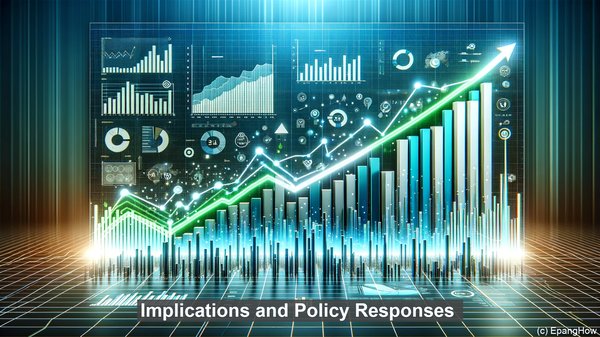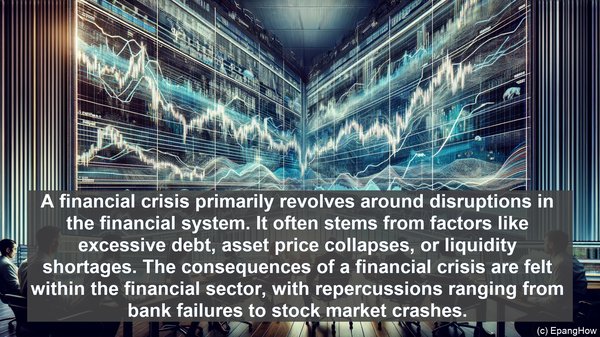Introduction: The Intricate World of Crises
Hello everyone! Crises, whether financial or economic, have the power to reshape nations and impact lives. Today, we’ll explore the difference between a financial crisis and an economic crisis, two terms often used interchangeably but with distinct meanings and consequences.
Defining the Terms: Financial Crisis
A financial crisis primarily revolves around disruptions in the financial system. It often stems from factors like excessive debt, asset price collapses, or liquidity shortages. The consequences of a financial crisis are felt within the financial sector, with repercussions ranging from bank failures to stock market crashes.

Unraveling the Complexity: Economic Crisis
On the other hand, an economic crisis encompasses a broader spectrum. It refers to a significant decline in economic activity, including aspects like production, employment, and consumption. While a financial crisis is a subset of an economic crisis, the latter can occur due to various factors, such as recessions, natural disasters, or geopolitical events.
Interconnectedness: The Relationship Between the Two
Although distinct, financial and economic crises are closely intertwined. A severe financial crisis, like the 2008 global financial crisis, can trigger an economic crisis by causing a contraction in credit, leading to reduced investments, job losses, and a decline in consumer spending. Conversely, an economic crisis can create the conditions for a financial crisis, as a weakened economy may struggle to service debts or maintain stable financial institutions.

Implications and Policy Responses
The implications of these crises differ as well. In a financial crisis, the focus is often on stabilizing the financial system, ensuring liquidity, and preventing systemic risks. In contrast, an economic crisis demands broader measures, such as fiscal stimulus, monetary policy adjustments, and structural reforms to revive economic growth and restore stability. The policy responses, therefore, vary based on the nature of the crisis.
